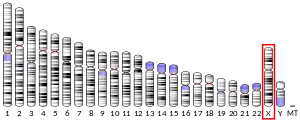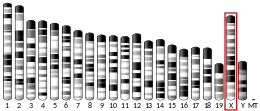| CDK16 | |||||||||||||||||||||||||||||||||||||||||||||||||||
|---|---|---|---|---|---|---|---|---|---|---|---|---|---|---|---|---|---|---|---|---|---|---|---|---|---|---|---|---|---|---|---|---|---|---|---|---|---|---|---|---|---|---|---|---|---|---|---|---|---|---|---|
| |||||||||||||||||||||||||||||||||||||||||||||||||||
| Identifiers | |||||||||||||||||||||||||||||||||||||||||||||||||||
| Aliases | CDK16, PCTAIRE, PCTAIRE1, PCTGAIRE, PCTK1, cyclin-dependent kinase 16, cyclin dependent kinase 16 | ||||||||||||||||||||||||||||||||||||||||||||||||||
| External IDs | OMIM: 311550 MGI: 97516 HomoloGene: 7878 GeneCards: CDK16 | ||||||||||||||||||||||||||||||||||||||||||||||||||
| |||||||||||||||||||||||||||||||||||||||||||||||||||
| |||||||||||||||||||||||||||||||||||||||||||||||||||
| |||||||||||||||||||||||||||||||||||||||||||||||||||
| |||||||||||||||||||||||||||||||||||||||||||||||||||
| |||||||||||||||||||||||||||||||||||||||||||||||||||
| Wikidata | |||||||||||||||||||||||||||||||||||||||||||||||||||
| |||||||||||||||||||||||||||||||||||||||||||||||||||
Serine/threonine-protein kinase PCTAIRE-1 is an enzyme that in humans is encoded by the PCTK1 gene.[5][6]
Function
The protein encoded by this gene belongs to the cdc2/cdkx subfamily of the ser/thr family of protein kinases. It may play a role in signal transduction cascades in terminally differentiated cells. This gene is thought to escape X inactivation. Two transcript variants encoding the same protein have been found for this gene.[6]
Interactions
References
- 1 2 3 GRCh38: Ensembl release 89: ENSG00000102225 - Ensembl, May 2017
- 1 2 3 GRCm38: Ensembl release 89: ENSMUSG00000031065 - Ensembl, May 2017
- ↑ "Human PubMed Reference:". National Center for Biotechnology Information, U.S. National Library of Medicine.
- ↑ "Mouse PubMed Reference:". National Center for Biotechnology Information, U.S. National Library of Medicine.
- ↑ Okuda T, Cleveland JL, Downing JR (Dec 1992). "PCTAIRE-1 and PCTAIRE-3, two members of a novel cdc2/CDC28-related protein kinase gene family". Oncogene. 7 (11): 2249–58. PMID 1437147.
- 1 2 "Entrez Gene: PCTK1 PCTAIRE protein kinase 1".
- ↑ Cheng K, Li Z, Fu WY, Wang JH, Fu AK, Ip NY (Aug 2002). "Pctaire1 interacts with p35 and is a novel substrate for Cdk5/p35". J. Biol. Chem. 277 (35): 31988–93. doi:10.1074/jbc.M201161200. PMID 12084709.
Further reading
- Meyerson M, Enders GH, Wu CL, Su LK, Gorka C, Nelson C, Harlow E, Tsai LH (1992). "A family of human cdc2-related protein kinases". EMBO J. 11 (8): 2909–17. doi:10.1002/j.1460-2075.1992.tb05360.x. PMC 556772. PMID 1639063.
- Knight JC, Renwick PJ, Downing JR, Okuda T (1995). "Physical linkage of the cdc2-related gene (PCTK1) and the ubiquitin-activating enzyme E1 gene (UBE1) on human Xp11.3". Cytogenet. Cell Genet. 71 (2): 155–7. doi:10.1159/000134097. PMID 7656587.
- Okuda T, Valentine VA, Shapiro DN, Downing JR (1994). "Cloning of genomic loci and chromosomal localization of the human PCTAIRE-1 and -3 protein kinase genes". Genomics. 21 (1): 217–21. doi:10.1006/geno.1994.1245. PMID 8088790.
- Carrel L, Clemson CM, Dunn JM, Miller AP, Hunt PA, Lawrence JB, Willard HF (1996). "X inactivation analysis and DNA methylation studies of the ubiquitin activating enzyme E1 and PCTAIRE-1 genes in human and mouse". Hum. Mol. Genet. 5 (3): 391–401. doi:10.1093/hmg/5.3.391. PMID 8852665.
- Sladeczek F, Camonis JH, Burnol AF, Le Bouffant F (1997). "The Cdk-like protein PCTAIRE-1 from mouse brain associates with p11 and 14-3-3 proteins". Mol. Gen. Genet. 254 (5): 571–7. doi:10.1007/s004380050453. PMID 9197417. S2CID 22809140.
- Esposito T, Gianfrancesco F, Ciccodicola A, D'Esposito M, Nagaraja R, Mazzarella R, D'Urso M, Forabosco A (1997). "Escape from X inactivation of two new genes associated with DXS6974E and DXS7020E". Genomics. 43 (2): 183–90. doi:10.1006/geno.1997.4797. PMID 9244435.
- Yu X, Wu LC, Bowcock AM, Aronheim A, Baer R (1998). "The C-terminal (BRCT) domains of BRCA1 interact in vivo with CtIP, a protein implicated in the CtBP pathway of transcriptional repression". J. Biol. Chem. 273 (39): 25388–92. doi:10.1074/jbc.273.39.25388. PMID 9738006.
- Le Bouffant F, Capdevielle J, Guillemot JC, Sladeczek F (1998). "Characterization of brain PCTAIRE-1 kinase immunoreactivity and its interactions with p11 and 14-3-3 proteins". Eur. J. Biochem. 257 (1): 112–20. doi:10.1046/j.1432-1327.1998.2570112.x. PMID 9799109.
- Besset V, Rhee K, Wolgemuth DJ (1999). "The cellular distribution and kinase activity of the Cdk family member Pctaire1 in the adult mouse brain and testis suggest functions in differentiation". Cell Growth Differ. 10 (3): 173–81. PMID 10099831.
- Cheng K, Li Z, Fu WY, Wang JH, Fu AK, Ip NY (2002). "Pctaire1 interacts with p35 and is a novel substrate for Cdk5/p35". J. Biol. Chem. 277 (35): 31988–93. doi:10.1074/jbc.M201161200. PMID 12084709.
- Graeser R, Gannon J, Poon RY, Dubois T, Aitken A, Hunt T (2002). "Regulation of the CDK-related protein kinase PCTAIRE-1 and its possible role in neurite outgrowth in Neuro-2A cells" (PDF). J. Cell Sci. 115 (Pt 17): 3479–90. doi:10.1242/jcs.115.17.3479. PMID 12154078.
- Wu K, Bottazzi ME, de la Fuente C, Deng L, Gitlin SD, Maddukuri A, Dadgar S, Li H, Vertes A, Pumfery A, Kashanchi F (2004). "Protein profile of tax-associated complexes". J. Biol. Chem. 279 (1): 495–508. doi:10.1074/jbc.M310069200. PMID 14530271.
- Palmer KJ, Konkel JE, Stephens DJ (2005). "PCTAIRE protein kinases interact directly with the COPII complex and modulate secretory cargo transport". J. Cell Sci. 118 (Pt 17): 3839–47. doi:10.1242/jcs.02496. PMID 16091426.
- Rual JF, Venkatesan K, Hao T, Hirozane-Kishikawa T, Dricot A, Li N, Berriz GF, Gibbons FD, Dreze M, Ayivi-Guedehoussou N, Klitgord N, Simon C, Boxem M, Milstein S, Rosenberg J, Goldberg DS, Zhang LV, Wong SL, Franklin G, Li S, Albala JS, Lim J, Fraughton C, Llamosas E, Cevik S, Bex C, Lamesch P, Sikorski RS, Vandenhaute J, Zoghbi HY, Smolyar A, Bosak S, Sequerra R, Doucette-Stamm L, Cusick ME, Hill DE, Roth FP, Vidal M (2005). "Towards a proteome-scale map of the human protein-protein interaction network". Nature. 437 (7062): 1173–8. Bibcode:2005Natur.437.1173R. doi:10.1038/nature04209. PMID 16189514. S2CID 4427026.
- Liu Y, Cheng K, Gong K, Fu AK, Ip NY (2006). "Pctaire1 phosphorylates N-ethylmaleimide-sensitive fusion protein: implications in the regulation of its hexamerization and exocytosis". J. Biol. Chem. 281 (15): 9852–8. doi:10.1074/jbc.M513496200. PMID 16461345.
This article is issued from Wikipedia. The text is licensed under Creative Commons - Attribution - Sharealike. Additional terms may apply for the media files.






